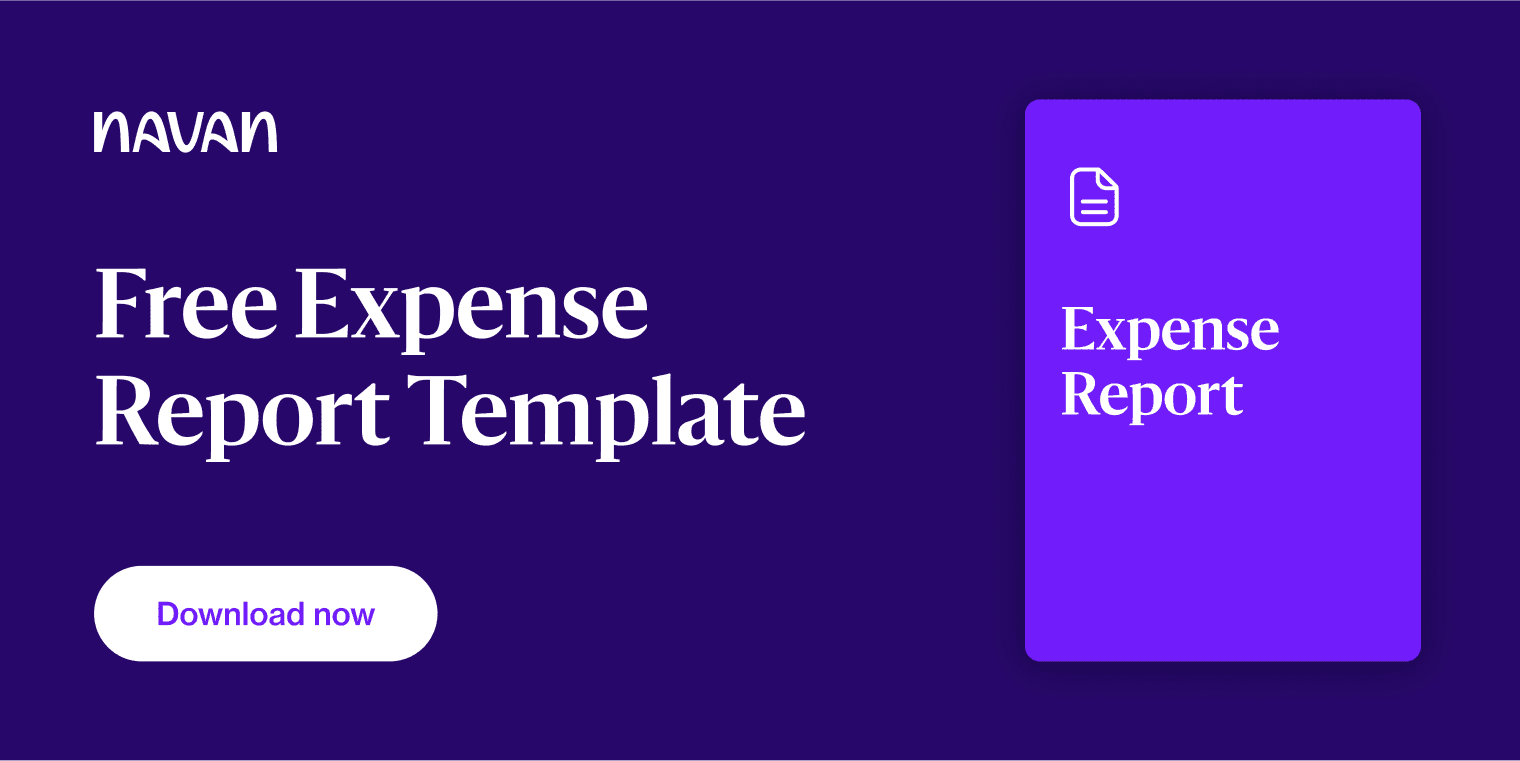Expense Report - Navan Expense Management Glossary
An expense report is a detailed document prepared by employees to itemize the expenditures they incur during the performance of their job duties which are subject to reimbursement by their employer.
These expenses often include costs related to travel, accommodation, meals, and other business-related outlays. The primary function of an expense report is to provide an accurate record of business expenses for both reimbursement purposes and accounting accuracy.
Employees are typically required to attach receipts or other proof of each expense as part of the submission process to verify the costs incurred. The report must then be approved by a supervisor or the relevant department to ensure the expenses are justified and fall within the company's spending policies.
Expense reports are crucial for maintaining financial control within an organization, allowing for effective budget management and preventing unauthorized or unnecessary expenditures. They also play a significant role in ensuring compliance with both internal policies and external regulatory requirements, particularly concerning tax laws and audit regulations.
Frequently Asked Questions
An expense report is a document used by employees to claim reimbursement for expenditures incurred as part of performing necessary job functions. For business travel, this can include costs for transportation, lodging, meals, and other incidental expenses.
To submit an expense report, you typically need to fill out your company’s expense report form, attach all relevant receipts, and submit both the form and receipts to your finance department or through an online system, depending on your company's procedures.
Your business travel expense report should include any expenses related to your travel such as airfare, hotel accommodations, car rentals, business meals, and other expenses directly associated with your business trip.
Personal expenses are generally not reimbursable. You should only include expenses directly related to business activities in your expense report.
You should provide itemized receipts for all expenditures claimed on your expense report. This typically includes receipts for lodging, meals over a certain amount, transportation, and any other expenses incurred that require reimbursement.
Companies generally have their own policies regarding how soon after a trip expense reports need to be submitted. It's best to submit your expense report as soon as possible after your return to facilitate timely reimbursement and maintain accurate financial records.
Common mistakes include failing to provide receipts, submitting personal expenses, and making errors in itemization or calculation. Ensuring accuracy and completeness of the documentation can help avoid delays in processing.
If your expense report is rejected or queried, review the feedback or questions raised, correct any errors, and resubmit with necessary adjustments or additional documentation. Communicate with your finance team to understand any company-specific requirements you may have missed.
Most companies use expense management software that allows you to track the status of your expense reports. If your company does not use such software, contact your finance or accounting department directly for updates.
Yes, many companies utilize expense management software that simplifies the submission, approval, and reimbursement processes of expense reports. These tools often provide mobile apps to manage expenses on the go, integrate with corporate credit cards, and automate compliance with company spending policies.
This depends on your company’s policy. Some expenses, particularly large amounts or expenditures outside of typical business activities, might require pre-approval from a supervisor or the finance department.
Best practices include keeping all receipts organized, using corporate credit cards when possible, understanding and following your company’s expense policy, and using company-preferred vendors to ensure compliance and qualify for special rates or discounts.
Read now
Take Travel and Expense Further with Navan
Move faster, stay compliant, and save smarter.